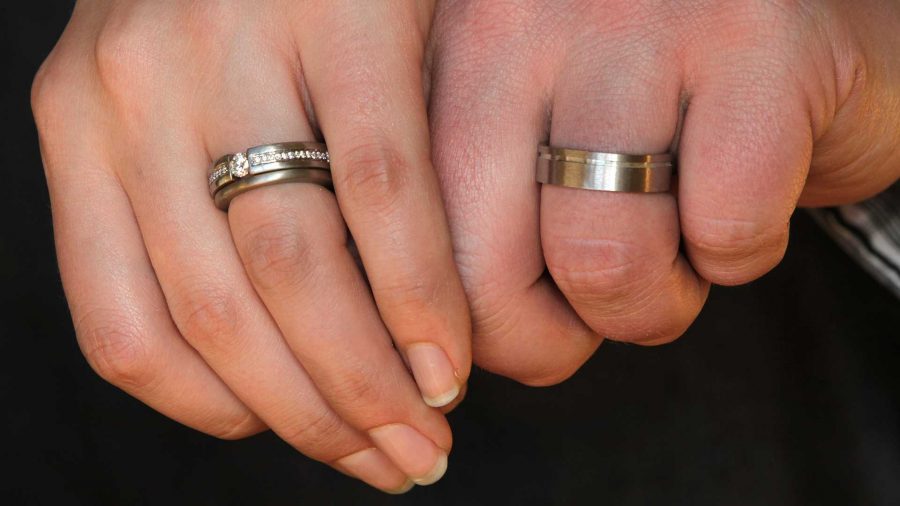By Jordan Prochnow
When teaching assistant Christopher Junk (né Hollis) recently married Emma Junk, he made the decision to take her last name instead of the other way around.
“She is equally as much a person as I am. The tradition around the wife taking the husband’s last name is largely symbolic and devoid of intrinsic meaning,” Christopher Junk said in an email to The Daily Iowan. “Symbolically, it is two humans coming together as one family. So, I asked myself, ‘Why should she have to make a change simply because of what tradition has decided’?’’
Christopher Junk also made the decision to change his surname because of his wife’s strong identification with her last name. While he said he is still connected to his birth name, he did not feel the same level of connection that she feels to hers.
“At my core, I am a product of the Hollis family as well as I am a product of my own experiences thus far in life. That is unchangeable,” he said. “I identify myself more with what I do in life and how I make my decisions than the combination of letters that make up my surname.”
Iowa is one of several states that specifically allows a man to take his wife’s last name; the Junks were married in Illinois, which has stricter laws and a more difficult process to change one’s last name.
“Interestingly, most states do not have it legal for the man to take the woman’s name,” Christopher Junk said. “In fact, Iowa is one of the few states that has made it explicitly legal for a husband to take his wife’s name. That’s neat about Iowa.”
RELATED: Race beyond appearance
Johnson County Recorder Kim Painter said that in Iowa, a person can change her or his first, middle, or last name upon marriage, while some states have more stringent laws.
“For legal purposes, all a couple need to validate their name change is the certified copy of their marriage certificate,” Painter said. “Once they’re married in Iowa, whatever they put on that document is their name.”
The practice of men taking their wives’ names is a unique and fairly new idea. The practice of women changing their surnames dates back to some of the earliest marriages.
“Women changing their names to their husband’s surname is an inherently patriarchal practice,” Co-President of the UI Feminist Union Meredith Palmer said in an email to The Daily Iowan. “The societal norm is asking women to literally change their identity to tie themselves to men — while it may not have such a literal effect today, it has the optics of ownership.”
Christopher Junk said that while his name change has brought him and his wife closer, as has their marriage in general, not everyone has reacted positively to his decision. For most, perhaps, the idea of taking the wife’s name is not common practice, but he stands by his decision.
“I do not understand how my decision to not fall in line with social norms threatens another’s way of life, but I understand that it can be confusing,” he said. “When people step outside of societal norms, they force others to think about the norm that is being challenged, which can be discomforting.”



